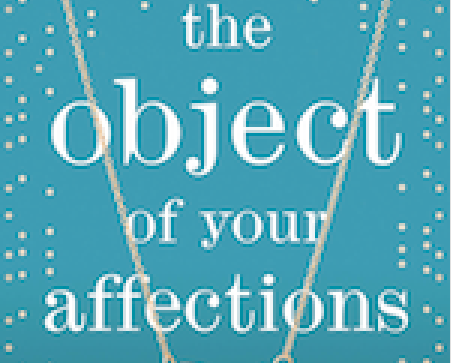
The Object of Your Affections: What’s a Baby Between Friends?
Yona Zeldis McDonough: The subject of surrogacy in general—and surrogacy when two of the participants are best friends—is a complicated one; care to comment?
Falguni Kothari: Surrogacy has existed for eons in the Indian culture, so the idea of it wasn’t foreign to me. In the past decade, surrogacy has gained momentum worldwide, helping couples achieve their assorted family goals where other paths have failed. There are several ways surrogacy can work. There’s compensated surrogacy where intended parents pay a surrogate to carry their child. There’s gestational surrogacy where the child is biologically from the intended parents. In cases where the intended mother can’t donate her eggs, there’s traditional surrogacy where the child is biologically the father and the surrogate’s. Then there’s altruistic surrogacy in which no money is exchanged between the contracted parties.
Each choice has its own pros and cons. By its very nature, compensated surrogacy can become a landmine of wrongdoing. Surrogates and intended parents can be preyed upon by each other or the agents bringing them together. But, in my opinion, when it’s personal relationships bringing the surrogacy about—like being best friends or sisters or sisters-in-law—it gets beyond complicated. Essentially, the child would have two mothers, and even if one mother is the “real” one, the surrogate might feel invested in the child’s welfare. Egos might come into play, and the blame game if something went wrong.
YZM: What does Paris learn from the process? And what about Naira?
FK: Paris is a control freak. Due to her own childhood experiences as a twice-adopted child of the system, and the uncertainties and insecurities she grew up with, she needs to be the decision-maker. She needs to map out her life and marriage to the last detail. But, in the end, Paris learns that pregnancy can’t be planned. Neither can feelings and relationships. You have to take them as they come.
For Naira, the surrogacy symbolized rejuvenation. She felt she owed her friend a favor. She felt she owed karma or fate a life. The pregnancy gave her a chance to get over her grief for her husband, and to make a long-buried dream come true.
YZM: Why did you decide to make the Judge and Lily—Paris’s adoptive parents—Jewish? Were they based on anyone you knew?
FK: It wasn’t a conscious decision. I have a lot of Jewish friends and the Judge and Lily’s characters developed organically in the book. No, they are not based on anyone in particular.
YZM: You use Yiddish in such an easy, natural way; who was your teacher?
FK: Yay! I’m so glad I got the Yiddish right. As I said, I have plenty of Jewish friends who I harassed while writing the book. They took the time to explain how Yiddish was an amalgamation of several languages, and the people who use it is diminishing. But, if you’ve grown up in a household that speaks it, like Paris, it would be ingrained in her. Or be a part of her thought patterns.
It’s quite like my own household where we speak predominantly in English, but our speech is liberally peppered with Gujarati words, especially when we can’t find an English equivalent contextually. Gujarati is my mother tongue.
YZM: Paris’ history seems to indict the whole system of foster care and adoption in this country; did you intend that?
FK: I did not—do not—intend to indict any system or way of life, be it the foster care system or surrogacy. I did intend to highlight the things that can go wrong in each system. Paris was the perfect protagonist to help me do that because she is opinionated, and yet, she is analytical. She observes a situation—or tries to from every angle, and wonders if it can be changed or improved upon.
YZM: What do you hope your readers will take away from this story?
FK: I really hope that my readers enjoy the story, and that they learn something new about the world or even themselves while doing so. I want them to think about life choices—like marriage and parenthood. Whether you want a child or can’t see yourself as a parent, both paths are complicated. What might work for you might not work for your neighbor. I want them to think about what it means to be a parent, and why women feel the onus of “the biological clock” more than a man does. And, why it’s so?
The views and opinions expressed in this article are the author’s own and do not necessarily reflect those of Lilith Magazine.




